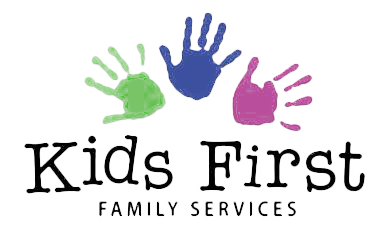Evidence Based Psychotherapy:
The treatment of mental and emotional disorders through the use of psychological techniques designed to encourage communication of conflicts and insight into problems, with the goal being to relieve symptoms, changes in behavior leading to improved social and vocational functioning, and personal growth. Psychotherapy can include: individual therapy, family therapy, couples therapy, and play therapy.
Parenting Classes:
Classes are designed to help parents become more positive and nurturing. Parents will learn stress reduction and problem-solving skills along with positive discipline techniques that build healthy family relationships. Sessions will include discussions on communication, self-esteem, substance abuse, domestic violence, child development and growth, and available community resources. Court Approved.
Parenting Course consists of 8 1-hour classes. Cost is $240 for the course and included materials and certificate of completion. If only the “Effects of Domestic Violence on Children” class is required the fee is $50 and includes a letter verifying completion.
Psychosocial Rehabilitation and Basic Skills Training:
Psychosocial Rehabilitation (PSR) and Basic Skills Training (BST) services help clients reach or maintain their greatest level of function; they are designed to help clients:
- Make the most of their personal strengths
- Develop ways to cope and deal with areas of weakness
- Build a supportive environment in which to function
Psychosocial Rehabilitation:
Psychosocial Rehabilitation (PSR) services are rehabilitative mental health services interventions designed to reduce psychosocial dysfunction (i.e., interpersonal cognitive, behavioral development, etc.) and restore recipients to their highest level of functioning. PSR services target psychological functioning within a variety of social settings.
PSR services may include any combination of the following interventions:
a. Behavior management: Recipients learn how to manage their interpersonal, emotional, cognitive and behavioral responses to various situations. They learn how to positively reflect anger, manage conflicts and express their frustrations verbally. They learn the dynamic relationship between actions and consequences;
b. Social competency: Recipients learn interpersonal-social boundaries and gain confidence in their interpersonal-social skills;
c. Problem identification and resolution: Recipients learn problem resolution techniques and gain confidence in their problems solving skills;
d. Effective communication: Recipients learn how to genuinely listen to others and make their personal, interpersonal, emotional, and physical needs known;
e. Moral reasoning: Recipients learn culturally relevant moral guidelines and judgment;
f. Identity and emotional intimacy: Recipients learn personal and interpersonal acceptance. They learn healthy (appropriate) strategies to become emotionally and interpersonally intimate with others;
g. Self-sufficiency: Recipients learn to build self-trust, self-confidence, and/or self reliance;
h. Life goals: Recipients learn how to set and achieve observable specific, measurable, achievable, realistic and time-limited life goals; and/ or
i. Sense of humor: Recipients develop humorous perspectives regarding life’s challenges.
Basic Skills Training:
Basic Skills Training (BST) services are rehabilitative mental health services interventions designed to reduce cognitive and behavioral impairments and restore recipients to their highest level of functioning. BST services are provided to recipients with age and developmentally inappropriate cognitive and behavioral skills. BST services help recipients acquire (learn) constructive cognitive and behavioral skills.
BST services may include the following interventions:
a. Basic living and self-care skills: Recipients learn how to manage their daily lives, recipients learn safe and appropriate behaviors;
b. Social skills: Recipients learn how to identify and comprehend the physical, emotional and interpersonal needs of others—recipients learn how to interact with others;
c. Communication skills: Recipients learn how to communicate their physical, emotional and interpersonal needs to others—recipients learn how to listen and identify the needs of others;
d. Organization and time management skills: Recipients learn how to manage and prioritize their daily activities; and/or
e. Transitional living skills: Recipients learn necessary skills to begin partial independent and/or fully independent lives.
